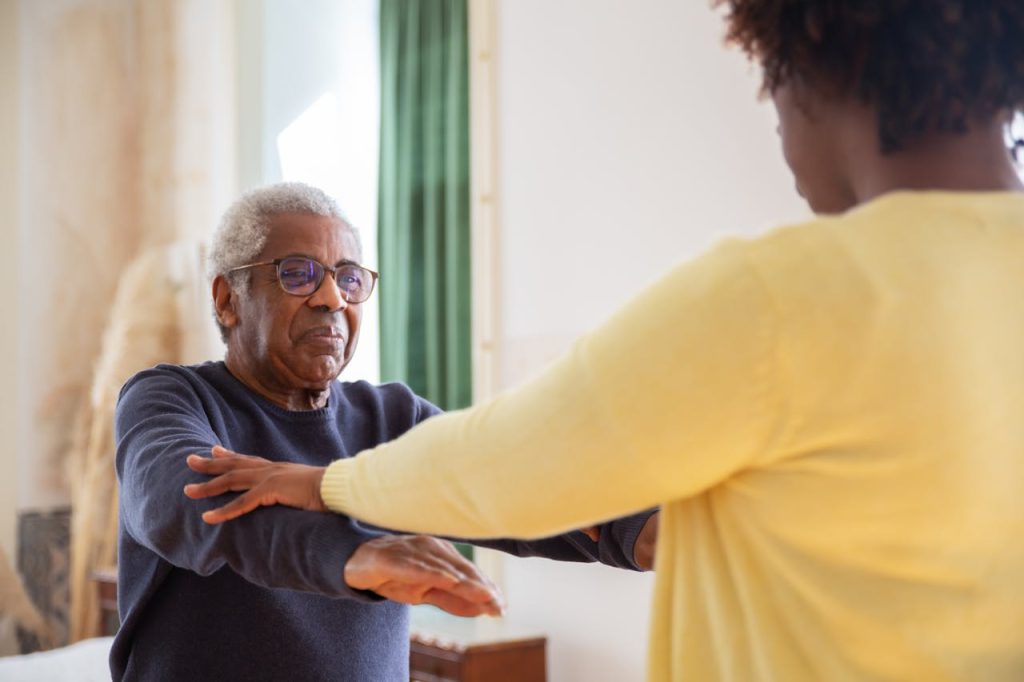Taking care of a loved one isn’t something most people train for. You don’t wake up one morning with a care plan, medical know-how, and emotional resilience all figured out. You just… start. Maybe a parent begins to forget names, or a spouse needs help after surgery. Suddenly, you’re not just a partner, daughter, or son, you’re a caregiver. And the learning curve? It’s steep, ongoing, and often messy.
But here’s the thing, caregiving doesn’t come with a diploma, and that’s okay. Because what it does come with is daily opportunities to grow. Not always gracefully, not always willingly, but always meaningfully.
Whether you’re helping with meals or meds, appointments or mobility, caregiving transforms your role in ways that require more than good intentions. You need tools, support, and yes, education. Fortunately, support services like Life Assure can be part of that toolkit, helping caregivers stay prepared as they adapt to the ever-changing needs of aging family members.
Let’s unpack what this “educational curve” really looks like, no textbooks required.
The First Lessons Are Personal
At the beginning, most caregivers aren’t learning medical procedures or insurance codes. They’re learning patience. They’re learning how to handle their own stress when routines suddenly revolve around someone else’s pain, memory loss, or physical limitations.
There’s also a crash course in humility. You quickly realize you don’t know everything, and that’s actually a gift. It opens the door to asking questions, seeking advice, and becoming a better advocate.
Many first-time caregivers start by searching online at 2 a.m., trying to figure out what a medication does or whether a fall warrants a trip to the ER. This kind of learning is reactive, it’s urgent, emotional, and often exhausting. But it’s also the first step toward a more informed, empowered caregiving journey.
The Emotional Curriculum
Family caregiving is just as emotional as it is logistical. You’re dealing with someone you love, which makes everything feel heavier.
It’s one thing to help someone walk or eat. It’s another to help them grieve their independence.
You might not realize it, but you’re taking on a new emotional education. You’re learning how to stay calm when things feel out of control. How to validate someone’s fears even when you’re quietly panicking yourself. How to show up again and again, even when you feel like you’re failing.
This kind of growth isn’t talked about enough. But it’s real. And it matters just as much as learning to refill a prescription or navigate hospital forms.
Skill-Building on the Fly
Unlike formal education, there’s no syllabus in caregiving. You don’t get a schedule saying, “This week you’ll master safe transfers, and next week you’ll handle medication reconciliation.”
Nope. Instead, you learn on the fly. Your dad falls in the shower, and suddenly you’re researching non-slip mats and shower chairs. Your mom misses a dose, and you’re figuring out how to set reminders and organize pill boxes.
Some of the most important skills include:
- Time management (because doctor appointments always eat more time than planned)
- Effective communication (especially when you’re dealing with medical professionals)
- Basic medical literacy (blood pressure readings, wound care, etc.)
- Tech troubleshooting (telehealth, medical devices, apps)
What makes it “lifelong” is that just when you get comfortable, something shifts. A diagnosis changes. A behavior becomes more intense. And boom, you’re back to square one.
The Quiet Power of Peer Learning
Here’s one of caregiving’s best-kept secrets: other caregivers are your best teachers.
Whether it’s a Facebook group, local support circle, or just a neighbor who’s been through it, talking to someone who gets it is priceless. They’ll give you real-world advice, not the sugar-coated stuff you find on websites or brochures.
They’ll tell you the best brands of adult diapers that don’t leak at night. They’ll warn you about burnout signs you didn’t even know to look for. They’ll send you templates for medication tracking or meal planning.
And sometimes, they’ll just listen without trying to fix anything, which is its own kind of education in empathy.
Learning to Ask for Help (Yes, It Counts)
Many caregivers pride themselves on doing it all. But learning when, and how, to ask for help is one of the most important lessons of all.
Sometimes that help comes in the form of professional respite care. Other times it’s a relative who steps in for a weekend, or a home safety device that lets you sleep a little easier at night.
The point is, support isn’t a sign of weakness. It’s a sign of strategy. It means you’re planning for sustainability instead of martyrdom. Because let’s face it, turned-out caregivers can’t give quality care.
Learning how to delegate, outsource, or simply pause is a skill just like any other. And one that should be taught from Day One.
Why Continuing Education Matters. Even Without a Classroom
You might not need a certificate, but continuing education in caregiving is essential.
As your loved one’s needs evolve, so should your knowledge base. Conditions like dementia, diabetes, and Parkinson’s all come with their own progression paths. Staying informed helps you plan better, avoid emergencies, and reduce stress, for both of you.
Luckily, resources are more accessible than ever. From online caregiving courses to YouTube demonstrations to telehealth Q&As, there are endless ways to level up your knowledge without ever setting foot in a lecture hall.
The key is knowing what to look for, and giving yourself permission to keep learning.
When Tech Becomes a Teaching Tool
Technology often becomes part of the learning curve, too.
You might start using an app to track medications or monitor vitals. Or maybe you install a fall detection device, motion sensors, or even a smart speaker to make reminders easier.
At first, tech can feel overwhelming. But over time, it becomes a crucial support system, not just for your loved one’s safety, but for your own peace of mind.
Even a simple GPS-enabled emergency pendant can mean the difference between constant anxiety and feeling empowered. Think of it as both a safety net and a tutor, it teaches you to trust that help is close by.
The Caregiver Identity Shift
At some point, you stop seeing yourself as “just helping out” and start identifying as a caregiver. That shift doesn’t always happen overnight. But when it does, it’s powerful.
Because now you understand the value of your role, not just emotionally, but practically. You’re managing appointments, advocating in medical settings, and maybe even administering treatments. You’re not guessing anymore. You’re informed. And you’re making a real difference.
That’s what lifelong learning does. It replaces fear with readiness. Uncertainty with clarity. And burnout with tools that actually work.
Grace for the Gaps
Here’s the truth: you’ll never know it all.
There will be bad days. Days you forget something important. Days when you lose your patience or feel like you’re doing everything wrong.
But that’s part of the learning curve, too, giving yourself grace for the gaps. You’re not supposed to be perfect. You’re supposed to be growing.
And every time you show up again, even after a tough moment, you’re proving that you are.

Wrapping It Up
Caregiving isn’t just something you do, it becomes a part of who you are. And like any deeply personal experience, it comes with a learning curve that never quite flattens out.
But with every new challenge, you also gain something, knowledge, perspective, or resilience you didn’t have before.
So if you’re in the thick of it right now, googling side effects, juggling pill boxes, feeling like you’re falling behind, take a breath. You’re not failing. You’re learning.
And that makes all the difference.


